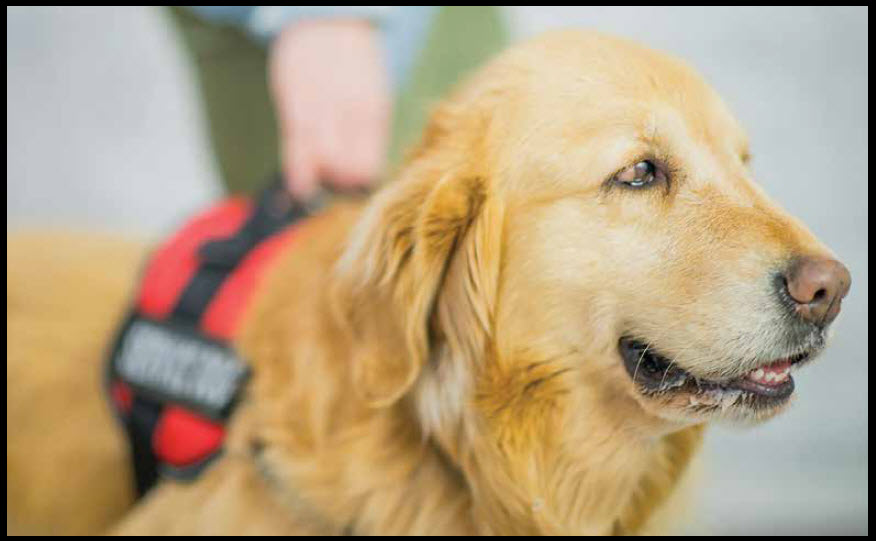 By: Joel Allen
By: Joel Allen
Not long ago the news media was all abuzz about the new legislative law in Alabama for service dogs. I and a few others were very pleased that Alabama was starting to take an active role in preventing fraudulent service dogs because people will just take their pet dog in a store and place it in the buggy. In some cases the dog will bark and growl at people or other “real” service dogs. News flash for those guilty of placing their dogs in a buggy, it is a major health violation! There have been a few occasions where I and one of my two service dogs were in Walmart and crossed paths with another service dog. In those cases, I reinforce the behavior of my service dogs and redirect their attention away or calm them, because they are dogs and sometimes even the best trained can still react. In most interactions I have seen with mine, they just look; and I see that thought-bubble above their head saying, “What?! There is another dog in my world?!” Anyways, there have been a few times where we have been in Walmart and the dogs in the buggies would see us and then start to bark. With mine, I would calmly talk to them and keep them calm while walking away.
I have poured over the new Alabama law regarding service dogs, and to my disappointment, it bears no “teeth.” What I mean is that according to what I have read, the legislature is just reinforcing what the federal law states and placed more “legalese” that can be a bit confusing. The only other penalty I read was if someone is found to have a fraudulent service dog, they can be fined up to $500 or charged with a Class C misdemeanor for the first offense. If there is a second offense, then it will progress to a Class B misdemeanor. I collected this data from www.animallaw.info/statute/al-assistance-animals-assistance-animalguide-dog-laws#s1. So, don’t just take my word for it, check it for yourself. My question is, how will they even be able to catch the frauds if there is no real way to question their validity?

Now, I am going to share an idea(s) with everyone to assist in validating a real service dog. One idea is to be observant when there is a “service dog” in the store; are they walking with their handler or being carried? Just because they are being carried does not necessarily mean they are not legitimate. Are they misbehaving, such as growling or barking (note: some service dogs alert by barking. Be sure the difference is known.) or are they trying to run around or even eliminate in the store? Keep in mind that service dogs do have to potty, too, and it is the handler’s responsibility to ensure they have done so in the designated areas. When my service dog Zues was alive, he had two separate occasions where he did have an accident in the store, and that was my fault because both times I forgot to take him to a designated area to eliminate. He asked but I did not pay attention, and he got my attention all right. My definition of a good service dog is when they are well behaved and no one seems to notice them until they are seen.

I have an idea on what the Alabama legislature can do about legitimizing or validating service dogs; we need to require access training and testing. Access training requires the dog to be trained in the environments in which it will be working and taught how to behave in public. Testing should be done by a certified dog trainer. It would benefit our lawmakers to get the advice of those of us who use service dogs too. Until the day the law is changed to require this, the fraud will be ever present.
One last note to my readers, service dogs are not just for the blind and hearing impaired. They are used for PTSD, diabetes, physical impairments, mobility, and many more needs. A person that uses a service dog will have a documented disability, but remember, no one can ask for documentation directly related to someone’s disability or documentation for service dogs. I hope this has been helpful. Have a great October and stay safe.
By: Joel Allen


